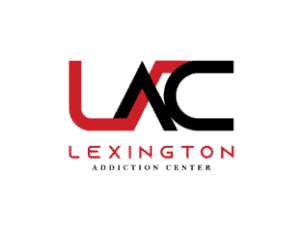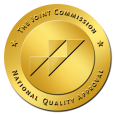Kentucky Drug and Alcohol Rehab Resources
Finding help should never feel harder than facing addiction itself. This directory of Kentucky Drug and Alcohol Rehab Resources pulls the state’s most trusted programs, hotlines, and funding options into one place so you can act quickly.
Whether you are a parent worried about a teen, an adult ready for change, or a friend seeking solid information, the pages that follow translate policies and statistics into clear next steps.
You will see how to compare levels of care, locate mental health services, and tap resources for addiction recovery, even if insurance feels confusing. By starting here, you skip guesswork and go straight to proven addiction recovery resources that fit real life.
Kentucky’s treatment landscape keeps evolving—new grants expand telehealth, community centers add after-school counseling, and statewide initiatives distribute thousands of free naloxone kits each year. Bookmark this guide, share it with loved ones, and return whenever circumstances shift. It is designed to move with you from first questions to long-term support.
Snapshot: Addiction & Mental Health in Kentucky
- Overdose trends: After years near the top of national rankings, Kentucky recorded a 30 percent drop in drug-overdose deaths in 2024, falling to 1,410 fatalities. State leaders credit expanded treatment access, broader naloxone distribution, and community outreach for the progress. AP News
- Opioid response: The Kentucky Overdose Response Effort (KORE) funds recovery services, school prevention programs, and nearly 100,000 free Narcan kits annually. In 2023 alone, KORE-supported providers served more than 32,600 people statewide. Kentucky.gov
- Depression prevalence: Roughly one in four Kentucky adults—25.8 percent—report having been diagnosed with depression, underscoring the need for integrated mental-health and substance-use care. America’s Health Rankings
- Access gaps: More than three million residents live in areas with a shortage of mental-health professionals, and cost remains a barrier for 40 percent of adults who need counseling but do not receive it. NAMI
Kentucky’s numbers tell two stories: a serious public health challenge and a coordinated response gaining momentum. The decline in overdose deaths shows that evidence-based addiction and recovery resources work when they reach the right people.
Meanwhile, high depression rates and provider shortages highlight why robust directories, telehealth options, and family-focused programs remain essential.
The next sections break down exactly where to find help—state hotlines, private rehab centers, peer groups, and financial assistance—so every Kentuckian can turn statistics into solutions.
How to Use These Kentucky Drug and Alcohol Rehab Resources
Every entry in this directory follows the same quick-scan format so that you can spot the right addiction and recovery resources in seconds:
- Name & Service Area – What region does the program cover?
- Snapshot – One-sentence overview of why you might call.
- Quick-Reference Icons
- [📞] 24/7 phone or text line
- [💻] online search tool or telehealth portal
- [💰] free or sliding-scale funding help
Sections are grouped from largest to most local:
- State-Supported Programs & Hotlines – First stops when you’re unsure where to begin.
- Private Treatment Centers – Residential, PHP, IOP, and outpatient options you can compare side-by-side.
- Family & Loved-One Services – Parent coaching, adolescent tracks, and support groups.
- Community & Peer Support – AA/NA, SMART Recovery, and faith-based meetings.
- Telehealth & Payment Guides – Rural access, insurance tips, and grant directories.
Skim the icons, then dive into the detail pages that list address, intake hours, and cost notes. Bookmark or print a PDF version so the most up-to-date resources for addiction recovery stay at your fingertips during every stage of healing.
State-Supported Programs & Hotlines
| Program | What It Does | Contact |
|---|---|---|
| KY Cabinet for Health & Family Services (CHFS) | Central hub for Medicaid enrollment, behavioral-health fee schedules, and a searchable map of community mental-health centers. Ideal starting point if you need insurance guidance or referrals. | [💻] chfs.ky.gov Cabinet for Health and Family Services |
| Kentucky Opioid Response Effort (KORE) | Funds mobile MAT clinics, recovery housing, and school prevention programs. In 2023, KORE partners served 32,600 Kentuckians and distributed nearly 97k Narcan kits statewide. | [💻] chfs.ky.gov/KORE [💰] Grants & free naloxone – Kentucky.gov |
| KY HELP Call Center | Live specialists connect callers to detox beds, low-cost counselors, and transportation vouchers. Staffed by Operation UNITE. | [📞] 1-833-8-KY-HELP (1-833-859-4357) Operation UNITE |
| Kentucky Mental Health Hotline | Confidential support for anxiety, depression, or emotional crises; advisors route you to local clinics or tele-therapy within minutes. | [📞] 866-903-3787 Mental Health Hotline |
| 988 Suicide & Crisis Lifeline (Kentucky) | Dial 988 to reach one of 14 in-state call centers staffed by trained counselors who can de-escalate suicidal thoughts, substance-use crises, or severe panic. Call, text, or chat 24/7. | [📞] 988 [💻] 988.ky.gov SAMHSA 988 Lifeline |
Why Start Here?
State lines mean state funding: these agencies offer no-cost addiction recovery resources such as transportation grants, waiver programs for uninsured adults, and real-time bed locators.
Because they partner with every licensed facility in Kentucky, a single phone call can uncover openings that private Google searches miss. Keep this shortlist handy—especially the 24/7 numbers—so you can pivot fast if a loved one’s situation changes overnight.
Together, CHFS, KORE, and the hotlines form the backbone of Kentucky’s public safety net, ensuring that evidence-based help remains within reach, whether you need same-day detox, telehealth therapy, or family education on overdose prevention.
Private Treatment Centers in Kentucky
Private, accredited rehab and mental-health facilities span every major region in the Commonwealth.
The summaries below help you zero in on geography, typical levels of care, and payment pathways—without diving into competitor-specific program menus that may not match what Lexington Addiction Center (LAC) provides.
Use the quick-reference icons introduced earlier:
- [📞] 24/7 admissions or info line
- [💻] website or virtual-intake portal
- [💰] accepts commercial insurance/financing
Louisville Region
Louisville and its surrounding counties host several well-established hospitals and freestanding recovery campuses. Residents often begin with medical detox or a partial hospitalization program (PHP) in Jefferson County, then step down to intensive outpatient (IOP) or traditional outpatient therapy closer to home.
| Louisville Area Snapshot | |
|---|---|
| Primary Levels of Care | Detox, PHP, IOP, MAT clinics, outpatient counseling |
| Special Focus Areas | Opioid-use disorders, alcohol misuse, trauma-informed therapy, dual-diagnosis tracks |
| Typical Insurance | Anthem Blue Cross Blue Shield, Aetna, Cigna, Medicare Advantage; sliding-scale cash rates for uninsured clients |
| How to Start | Call a 24/7 intake line [📞] or submit an online assessment [💻]; many facilities can verify benefits in under an hour. |
Pro Tip: If you live in a rural county south or west of Louisville, ask admissions about transport shuttles and tele-IOP options—services frequently underwritten by state grants.
Lexington & Bluegrass Region
Central Kentucky’s largest metro area offers a dense network of outpatient and community-based supports, with Lexington Addiction Center leading the charge in evidence-based, client-centered care.
| Details | Snapshot Info |
|---|---|
| Key Provider | Lexington Addiction Center (LAC) – private outpatient hub recognized for personalized treatment planning and seamless coordination with local psychiatrists. |
| Levels of Care at LAC | Intensive Outpatient Program (IOP), standard outpatient therapy, medication-assisted treatment (MAT), family counseling, and virtual care for rural clients. |
| Specialties | Substance-use disorders co-occurring with anxiety, depression, or PTSD; 12-Step integration; relapse-prevention skill-building. |
| Payment & Access | Accepts most major PPO plans, offers free insurance verification [📞], and provides interest-free payment plans [💰] for qualified clients. |
| Getting Started | Same-day screenings via phone or secure video [💻]. Evening IOP slots help adults balance work, school, or parenting. |
Beyond LAC, the Bluegrass region includes outpatient counseling collectives and physician-run MAT clinics—but if you need residential care not offered locally, LAC staff can coordinate referrals and share medical records so you avoid retelling your story.
Western & Eastern Kentucky
From the river counties to the Appalachian foothills, private treatment choices vary by population density. Larger regional medical centers often pair short-term inpatient stabilization with outpatient follow-up, while community nonprofits fill gaps with telehealth IOP and peer-recovery coaching.
| Western Counties | Eastern Counties |
|---|---|
| Hospital-based detox, outpatient SUD clinics, faith-inclusive counseling | Residential stabilization units, day treatment, peer centers, tele-MAT hubs |
| BCBS, UnitedHealthcare, Medicaid managed-care; charity-care funds in critical-access hospitals | Similar mix, plus federal Appalachian grants covering transportation and housing stipends |
| Check bed availability daily—openings change fast. Ask about gas vouchers if traveling 50 miles or more. | Inquire about mobile crisis teams and virtual psychiatric evaluations to shorten wait times. |
If you live far from Lexington, call LAC’s admissions desk anyway. Advisors maintain an updated statewide referral list and can share strategies for bridging rural-care gaps—whether that means virtual therapy, temporary sober housing, or coordinated transitions back to your hometown.
Choosing a Private Program: Three Fast Filters
- Level of Need – Detox and 24-hour supervision demand medical licensing; outpatient counseling does not. Match services to symptom severity and home stability.
- Whole-Person Fit – Look for programs that incorporate mental-health support, family engagement, and aftercare planning—not just drug abstinence.
- Payment Clarity – Before intake, request a Good-Faith Estimate and check whether labs, pharmacy, and physician fees are billed separately.
Private facilities can move faster than state-funded counterparts, but quality still hinges on accreditation, staff credentials, and continuity of care. Use these regional snapshots, verify licensure through the Kentucky Board of Alcohol & Drug Counselors, and lean on Lexington Addiction Center’s team when deciding which path feels achievable—financially, logistically, and emotionally.
Together, Kentucky’s private providers create a flexible safety net that complements the public hotlines and community groups outlined elsewhere in this guide, ensuring every resident—urban or rural—has a direct line to reliable addiction recovery resources when it matters most.
Specialty Services for Parents & Loved Ones
Addiction and mental health challenges ripple through entire households, so Kentucky’s addiction recovery resources include programs designed specifically for relatives who shoulder worry, logistics, and caregiving roles.
| Support Type | What to Expect | How to Access |
|---|---|---|
| Family Therapy Programs | Licensed therapists guide weekly sessions where loved ones learn boundary setting, conflict resolution, and relapse warning signs. Lexington Addiction Center offers both in-person and secure-video options. | Call the center’s family liaison [📞] or request a virtual intake [💻]. |
| Adolescent Tracks | Teens and young adults receive age-appropriate counseling that tackles peer pressure, trauma, and digital-era stress. Parents attend parallel workshops so everyone speaks the same recovery language. | Ask any outpatient clinic if they run youth groups or partner with local schools. |
| Grandparent Caregiver Resources | Kentucky’s Kinship Support Hotline links grandparents to childcare stipends, counseling vouchers, and peer mentors who understand late-in-life parenting. | Dial 877-KY-KARE for live assistance. |
| Online Parenting Groups | Private Facebook and Zoom circles give busy caregivers a chance to vent, swap tips, and attend expert Q&As after bedtime. Many are free and moderated by licensed counselors. | Search “Kentucky parent recovery support” or ask Lexington Addiction Center for vetted links. |
Community-Based & Peer-Led Support
AA, NA, Celebrate Recovery
- More than 1,200 Alcoholics Anonymous and Narcotics Anonymous meetings meet weekly across the state. Use the online map to filter by city, wheelchair access, or childcare availability.
- Celebrate Recovery blends 12-Step principles with Christian fellowship. Most chapters meet in church halls and welcome people facing any hurt, habit, or hang-up.
SMART Recovery
For those who prefer science-based strategies over traditional 12-Step language, SMART Recovery offers facilitator-led groups that teach cognitive-behavioral tools. Participants track urges, set goals, and practice problem-solving skills. Several Kentucky chapters also run hybrid Zoom sessions for rural members.
Faith-Based Options
Beyond Celebrate Recovery, you will find Buddhist Recovery meetings, Muslim-friendly discussion circles, and Appalachian lay ministries that pair scripture study with sober-living referrals. Faith leaders often host free counseling hours or sober social events.
LGBTQIA-Friendly Groups
Inclusive care matters. Organizations such as Queer Kentucky coordinate substance-free meetups and peer circles where pronouns, identity, and unique stressors are respected without explanation. Virtual rooms guarantee privacy for those not yet out at home.
How to Choose
- Check meeting filters for “open” versus “closed” designations.
- Try three meetings before deciding a format is not for you.
- Pair at least one peer group with professional therapy for a balanced support system.
By weaving these community networks into formal treatment, Kentuckians build resilience, accountability, and lifelong friendships—the bedrock of sustainable recovery. Together, professional services and peer circles create a full spectrum of addiction and recovery resources that keep help within reach long after discharge.
Telehealth & Virtual Care Options
Virtual IOP / MAT
Many outpatient programs now run Intensive Outpatient (IOP) groups over HIPAA-secure video platforms. Clients log in three to five evenings a week for CBT skill-building, relapse-prevention workshops, and medication-management check-ins. Several clinics also offer virtual inductions for medication-assisted treatment (MAT)—so you can begin buprenorphine or naltrexone without spending hours on the road.
Secure Family Sessions
If relatives live in another city (or another state), counselors simply drop a private meeting link into your email. Screen-sharing tools let therapists walk families through boundary worksheets, co-parenting plans, or discharge schedules in real time—no extra software required.
Rural Access Considerations
- Ask admissions about data-light platforms that run on low-bandwidth cellular service.
- Many county libraries provide private tele-health booths with noise-masking headsets.
- State grants cover Wi-Fi hotspots for qualifying households; dial KY 211 to apply.
With telehealth, you keep local work and school routines intact while tapping statewide addiction and recovery resources that once felt out of reach.
Paying for Treatment: Insurance, Sliding-Scale, Grants
Sticker shock shouldn’t derail your chance at sobriety. Kentucky offers multiple payment pathways—public, private, and philanthropic—to keep Kentucky Drug and Alcohol Rehab Resources within reach.
Medicaid & KCHIP Fundamentals
- Kentucky Medicaid covers detox, residential stabilization, MAT meds, and outpatient therapy for eligible adults.
- KCHIP extends those benefits to children and teens up to age 19, including counseling for co-occurring disorders.
- Apply online through the Kynect portal or by calling your county Department for Community Based Services office.
Commercial Insurance Tips
Most PPO and many HMO plans—Anthem BCBS, Aetna, Cigna, UnitedHealthcare—must provide “parity” coverage for mental-health and substance-use treatment. When you call the insurer:
- Ask for “in-network behavioral-health facilities” within 50 miles.
- Verify pre-auth requirements for detox, PHP, or IOP.
- Request a written explanation of any co-pays or deductibles.
Pro tip: Kentucky’s “Surprise Billing” law caps out-of-network charges if you receive emergency stabilization in a licensed facility, keeping unexpected invoices in check.
Sliding-Scale & Grant Dollars
- Facility Sliding-Scale Fees: Many clinics adjust rates based on household income—bring two recent pay stubs or last year’s tax return to intake.
- County Recovery Grants: Fiscal courts in Jefferson, Fayette, and Pike counties earmark opioid-settlement funds for treatment vouchers; check the county website or call the clerk’s office.
- Scholarships & Foundations: Nonprofits such as Kentucky Access to Recovery and church-affiliated ministries award one-time scholarships covering portions of residential stays, medications, or sober-living rent.
- Resources for Addiction Recovery Funds: State-managed revolving funds pay for transportation, child care, or work-uniform costs so financial hurdles don’t sabotage progress.
Combine two or three of these options—Medicaid for clinical services, a sliding-scale plan for counseling, and a small scholarship for sober housing—and the total cost drops fast. If the paperwork feels overwhelming, admissions coordinators at reputable centers will walk you through every form so you can focus on healing, not invoices.
Emergency & Crisis Contacts (24/7)
| Situation | Who to Call | What Happens |
|---|---|---|
| Immediate danger—overdose, violence, loss of consciousness | 911 [📞] | Paramedics and law enforcement dispatch within minutes. Ask for transport to the nearest ER with detox capability. |
| Suicidal thoughts, panic, or substance-use crisis but no active medical emergency | 988 Suicide & Crisis Lifeline [📞] [💻] | Trained Kentucky counselors de-escalate, connect you to local addiction recovery resources, or send a mobile crisis team if needed. |
| Substance use help & treatment navigation | KY HELP Call Center 1-833-859-4357 [📞] | Specialists locate open detox beds, outpatient slots, and funding assistance. |
| Mental-health support & referral | Kentucky Mental Health Hotline 866-903-3787 [📞] | Clinicians provide coping tips and schedule next-day tele-therapy. |
| Mobile Crisis Team (select counties) | Dial 988 and request a team | Licensed professionals arrive on-site to stabilize and arrange safe transport. |
When to choose 911 vs 988
- Call 911 for life-threatening symptoms: respiratory distress, seizures, uncontrolled bleeding, or violence.
- Call 988 when emotional or substance-use distress feels overwhelming, but vitals are stable. Counselors can loop in EMS if conditions worsen.
Save these numbers in your phone now; in a crisis, seconds matter.
FAQs About Finding Addiction Recovery Resources
Educational and resource content provided on Lexington Addiction Center pages is intended to support understanding of addiction and recovery. This content is not a substitute for professional medical care.
Third-party references are informational only and do not imply endorsement.
In medical emergencies, call 911 immediately.
Treatment decisions should always involve licensed professionals. Insurance coverage must be verified directly.
Use of this website does not establish a provider-patient relationship.
Get Help Today — Next Steps
Recovery starts with one honest conversation. If you or someone you love needs help, the Kentucky Drug and Alcohol Rehab Resources in this directory put lifesaving support a click or call away.
You can also contact our treatment center to:
- Verify insurance or explore sliding-scale plans.
- Schedule a same-day assessment—virtual or in person.
- Receive a custom list of local resources for addiction recovery matched to age, location, and clinical needs.
No judgment, no spam—just compassionate professionals ready to guide you toward detox, therapy, medication, or peer support. Bookmark this page, share it with family, and remember: robust addiction and recovery resources exist all across Kentucky, and the first step toward them is simply reaching out. You deserve safety, clarity, and a future free from substance misuse—let’s start building that future together today.
 | Medically Reviewed By: Board-Certified Psychiatrist and Addictionologist |
 | Clinically Reviewed By: Board Certified Clinical Social Worker |
Yes, Your Insurance Covers Detox and Rehab Treatment

Contact Us Today

Addiction and co-occurring disorders don’t have to control your life. Lexington Addiction Center is waiting with open arms to give you the tools necessary for lasting change. Reach out to us today to learn more.
Get Family Support Now
Supporting Families Through Recovery
We understand addiction affects the whole family. Our comprehensive family program helps rebuild trust and restore relationships.
Weekly Family Therapy Sessions
Educational Workshops
Support Groups
Communication Skills Training
Get Family Support Now



 859-681-7823
859-681-7823
